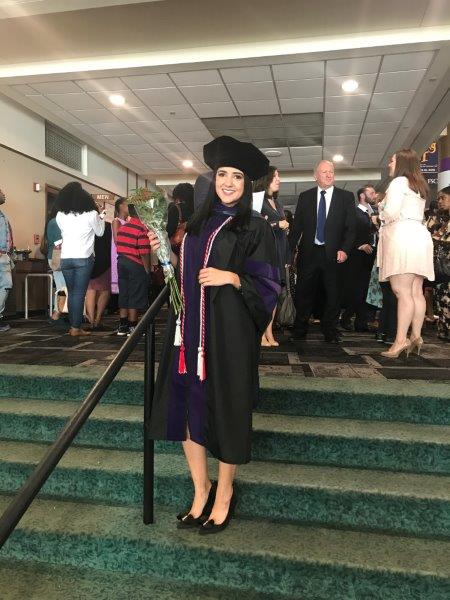Se Habla Español at Rubenstein Law: Lawyers Share About Their Latino Roots

Written by Blanca Morales for Rubenstein Law
Life in “La Florida”
Spanish in Florida is not a new phenomenon as one might think. Hispanic population may have flourished in the latter part of the 20th century, but se habla español has always been a feature in the Sunshine State--after all, the name Florida itself is Spanish.
Today, a quarter of Floridians speak a language other than English at home, including German, Portuguese, French Creole, Tagalog, and of course, the Castilian language we all call español.
As the fastest growing ethnic minority, Hispanics, which consist of almost one-fourth of the state population, are expected to be the one of the leading groups of entrepreneurs, thought leaders, and business owners in the coming years.
It’s no wonder, then, that many Hispanics have pursued careers that reflect principles embedded into Latin culture such as service and community.
Embracing Diversity
According to The American Bar Association president, Bob Carlson, diversity “will benefit the entire legal profession and our clients.”
To be a minority, bilingual and/or to claim a cultural heritage is an advantage, says Lynette Monem, one of the partners at Rubenstein Law. Lynette grew up speaking Spanish at home in South Florida. Her father, who is a Puerto Rican of Lebanese descent, made sure she was proficient in the language.
“It’s important to reinforce the language,” she said. “You don’t want to lose that.”
When she studied at Florida Coastal School of Law in Jacksonville, she was one of the few Hispanic students on campus. To her classmates, this was something unusual, but it was what made her stand out—in a positive way.
Her family’s rule of only-Spanish-at-home helped her to continue to speak the language into adulthood, enabling her in her career and giving her the opportunity to serve even more people.
Serving the Hispanic Communities of Florida
In Jacksonville, there weren’t many bilingual law students, and Lynette’s aptitude in Spanish granted her the opportunity to serve at the Immigration Services of Catholic Charities.
Eventually, her Spanish proficiency led her to a position at Rubenstein Law as the first female attorney hired by the firm in 2003.
Though the Hispanic National Bar Association found that less than 2% of female attorneys are Hispanic, Lynette is just one of 24 (out of 42) female attorneys on the team at Rubenstein Law.
“It’s tough [to be a female attorney] because it’s a male-dominant profession,” said Edismary Brito, who was recently hired at the firm.
When she was 10, Edismary moved to Miami from Cuba. Through her parents’ example, she learned about having a solid work ethic and to “do her best.” After being accepted into dental school, she obtained a job as a pre-litigation assistant at Rubenstein Law where she worked closely with Lynette, Ninfa Rodriguez Schmidt, and Heather McGriff.
It was there that she discovered her vocation in law and decided to take the LSAT. She passed the bar in September 2018.
Like Lynette, Edismary found that being one of the few Spanish-speakers at Florida Coastal was a great benefit. One of her favorite memories in Jacksonville was offering pro bono legal services to the community. Through an immigration and family law clinic, she was able to help those who didn’t have access to legal representation. To her, it was meaningful to be able to serve the Latino community.
“Sometimes an adjuster may think you’re not good enough because of your accent or background. They might look down at you. But in the end, it’s very rewarding when you’re able to help [a client] get a reward they deserve,” she said.
“My philosophy is that another person’s opinion should never project who you are. Their views are their problem,” said Lynette.
Lynette can’t imagine why her background or bilingual upbringing would cause anyone to look down on her. She sees her language skills and multi-cultural childhood as an asset she brings to the table as one of a very few law firm partners who are both Hispanic and female.
Anthony Soto, a partner at the firm and the first attorney hired by Robert Rubenstein, also learned that speaking Spanish, in today’s changing demographics, is a must.
Raised in New York and the Westchester neighborhood of Miami, he calls himself a “Heinz 57 mix” of different backgrounds. He never felt the need to speak Spanish--that is, until he met someone special.
“I actually learned it on my own. I didn’t start speaking Spanish until I met my wife of 39 years. Her parents didn’t speak English.”
This was reinforced when he became a police officer in 1970. Spanish became necessary to communicate with people he serviced. Proficiency in Spanish also became an asset when Anthony became a lawyer 11 years later.
Being able to speak Spanish with her clients “makes such a difference,” Lynette said. In Miami, she added, to be able to speak Spanish is an advantage.
Ready to Serve
Being bilingual is one of the keystones toward better serving those around them. Keeping with the Hispanic values of hard work and determination, Lynette, Edismary, and Anthony all agreed that their education also opened many doors and opportunities to bring changes to their community.
It was actually the example of Martin Luther King, Jr. and the Civil Rights movement that inspired Lynette as a child. She felt no one deserved to be treated unfairly. She knew, from a young age, that becoming an attorney was how she can defend others.
Going to law school and becoming an attorney is “strength and power,” Edismary said. “You can help others, speak for those who don’t have a voice. It’s very rewarding when you’re able to help them.”
“If you don’t have a good work ethic, then it’s going to be difficult. This is a tough business to come into if you think you’re going to be successful but not work hard,” Anthony said.
He continued, “I always encourage people to pursue education. We should all be interested in education. I encourage anyone if you really want to be a lawyer you can be—because I made it, I know it can be done.”


